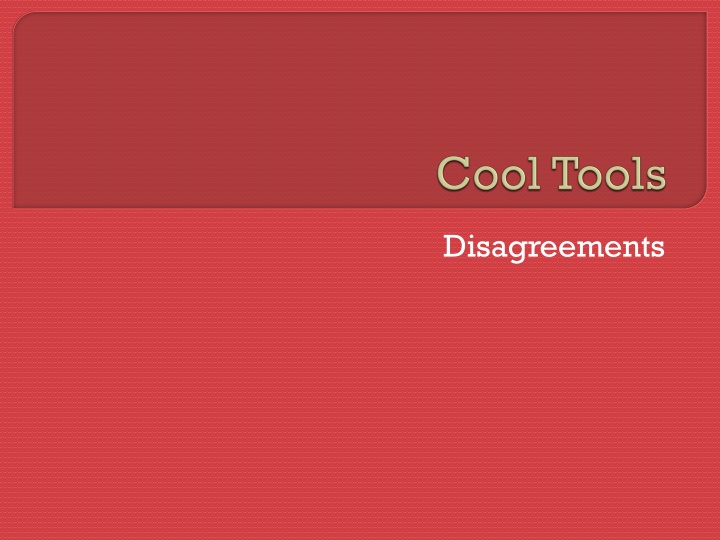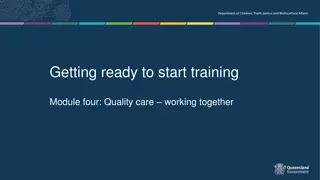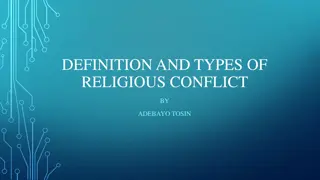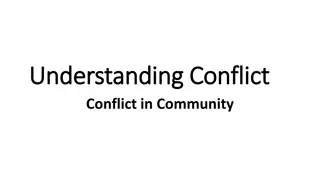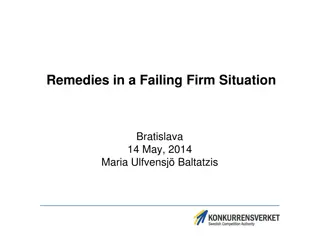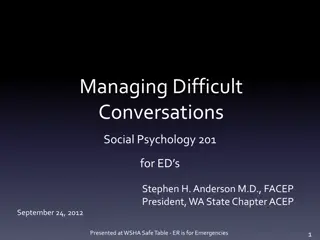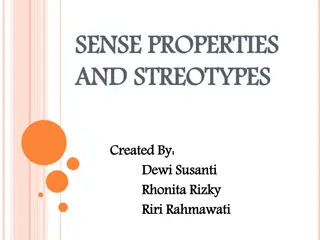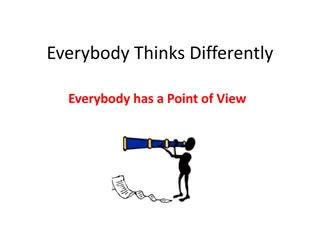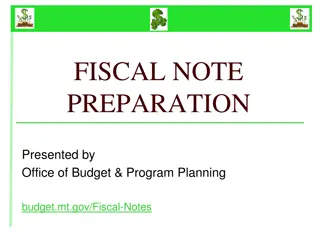Effective Strategies for Handling Disagreements
Handling disagreements effectively involves listening, using respectful language, avoiding heated responses, focusing on understanding, and staying calm and rational. It's essential to maintain respect, listen actively, express disagreements constructively, and manage conversations maturely, even when emotions run high. These strategies can help in constructive discussions and foster better understanding between parties.
Download Presentation

Please find below an Image/Link to download the presentation.
The content on the website is provided AS IS for your information and personal use only. It may not be sold, licensed, or shared on other websites without obtaining consent from the author.If you encounter any issues during the download, it is possible that the publisher has removed the file from their server.
You are allowed to download the files provided on this website for personal or commercial use, subject to the condition that they are used lawfully. All files are the property of their respective owners.
The content on the website is provided AS IS for your information and personal use only. It may not be sold, licensed, or shared on other websites without obtaining consent from the author.
E N D
Presentation Transcript
It's easier to agree than disagree. But we can learn a lot from conversations where we don't see eye to eye if we can listen and talk rationally, that is. Unfortunately, many us either shy away completely from disagreements or lose it when things don't go our way.
If you get upset, it can help to remember you're mad at the idea or concept your friend (or parent, coach, coworker, etc.) is raising, not the person.
If you've ever been on the receiving end of a tirade or put-down, you know how valuable using respectful language and behavior can be. So instead of saying what you might be thinking ("That's a stupid idea!"), try: "I don't agree, and here's why." Resist the temptation to yell, use sarcasm, or make mean comments people stop listening when you do those things.
Using "you" statements can sound argumentative. For example, telling your mom or dad, "You always remind me about my chores on Wednesdays when you know I have a lot of homework" has a very different tone from "I'm feeling pressured because I have a lot of homework tonight. Can I do those chores tomorrow?"
Being a listener is a way of showing that you respect and understand the other person's side. That makes it more likely he or she will do the same for you. When the person is talking, try to stop yourself from thinking about why you disagree or what you'll say next. Instead, focus on what's being said. When it's your turn to talk, repeat key points the person made to show you listened . Then calmly present your case and why you disagree.
This is the most important thing you can do to keep on track. Of course, it's a huge challenge to stay calm and rational when you feel angry or passionate especially if the person you're talking to gets heated. You may need to be the mature one who manages the conversation, even if the other person is a parent or someone who should know better.
Self-awareness is the ability to notice what you're feeling and thinking, and why. Little kids aren't very aware of what they feel, they just act it out in their behavior. That's why you see them having tantrums when they're mad. But you have the mental ability to be self-aware. When you get angry, take a moment to notice what you're feeling and thinking.
Self-control is all about thinking before you act. It puts some precious seconds or minutes between feeling a strong emotion and taking an action you'll regret. Together, self-awareness and self-control allow you to have more choice about how to act when you're feeling an intense emotion like anger.
Respect goes beyond difficult conversations, of course. Being helpful and considerate toward family members, friends, or coaches in our everyday actions helps all of us establish a foundation for those times when we might disagree. from http://kidshealth.org/teen/your_mind/families/tips_disagree.html
